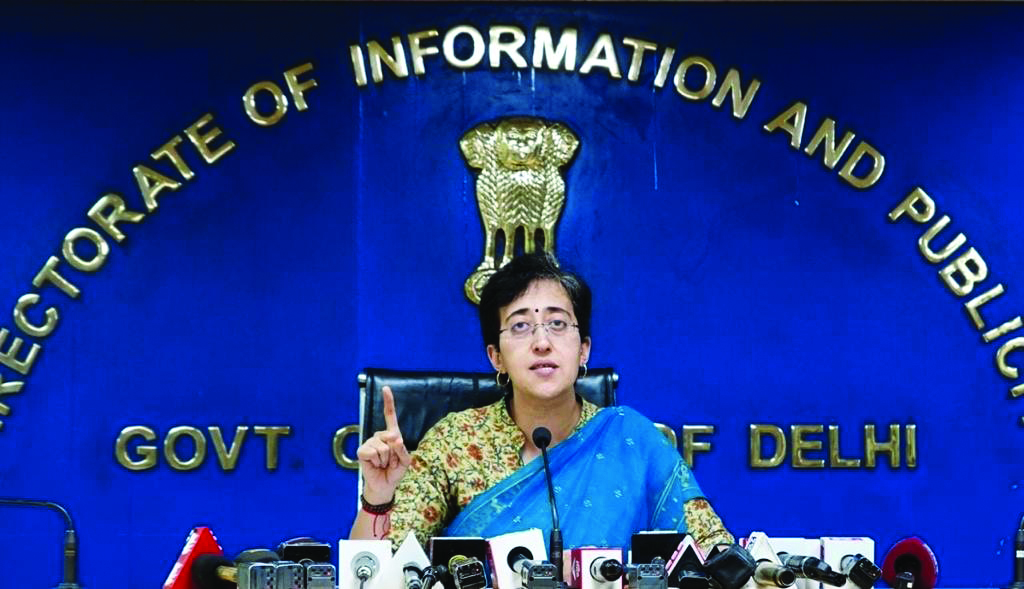Electricity bills set to rise in city

New Delhi: Power consumers in Delhi with monthly usage of over 200 units will have to pay more after an 8 per cent hike in the power purchase adjustment cost (PPAC), prompting minister Atishi to allege that electricity is getting costlier in the city due to the Centre’s “mismanagement”.
Atishi, the power minister in the city government, told reporters on Monday that the hike will not impact consumers whose electricity consumption is 200 units or below. There will be an 8 per cent hike in PPAC surcharge in power bills of those consumers who do not get subsidy, she said.
“I just want to tell the consumers that only the Centre is responsible for this hike. It has forced the use of imported coal, which is 10 times costlier than domestic coal. This is despite no lack of coal mines or availability of coal in the country,” she said.
The Delhi Electricity Regulatory Commission (DERC) has authorised electricity companies in Delhi to adjust the power purchase adjustment charge (PPAC). The PPAC, separate from electricity rates determined annually by the State government, accounts for nationwide fluctuations in coal and gas prices and is included in all consumer bills.
Starting in July, electricity bills in Delhi will experience a marginal increase. TPDDL consumers — 29 per cent of all domestic consumers — will see a 1.2 percent hike, BSES Rajdhani consumers (45 per cent) will face a 5.5 per cent increase, and BSES Yamuna consumers (26 percent) will encounter a 7.7 percent rise in their July bills. The DERC routinely assesses and adjusts the PPAC every three months.
The significant discrepancy between DERC-approved rates and the actual rates charged was underscored by Atishi. For instance, electricity from NTPC Aravali, priced at Rs 3.16 per kilowatt-hour, is being billed at Rs 4.50 to Delhi’s power companies. Similarly, the Dadri-2 plant’s electricity, priced at Rs 3.16, is sold at Rs 4.72, and the EMTP-7 plant charges Rs 3.48 instead of Rs 2.77.
The PPAC is revised every three months and it can increase or decrease depending on the prevailing prices of fuel such as coal and gas used in power generation.
Harish Khurana, the BJP’s Delhi unit spokesperson, however, blamed the hike on a “nexus” between the discoms and the AAP government.
“The AAP is shamelessly claiming that the PPAC increases in the summer and decreases in the winter every year. The reality is that the PPAC was hiked from 16 per cent to 22 per cent last year and it has again been hiked,” Khurana claimed.
The people of Delhi get free electricity on monthly consumption of 200 units. Those consuming 201-400 units get 50 per cent subsidy.
Atishi alleged, “I want to say that if the electricity is getting costlier in Delhi, it is only because of the Centre’s mismanagement.”
Noting that discoms are allowed to increase or lower the PPAC for three-month periods, Atishi said, “The prices of electricity have been increased because, due to the
Centre’s mismanagement, there is an artificial shortage of coal in the country for the first time in the last 70 years, shooting its prices (up).”
The Centre has “forced” coal buyers to purchase at least 10 per cent imported coal, which costs 10 times more than Indian coal. Domestic coal is priced around Rs 200 per tonne while the imported variety costs Rs 25,000 a tonne, the Delhi power minister claimed. “We want to know from the Centre if there is a nexus with coal importers which is why coal buyers are being forced to purchase imported coal at 10-times higher prices,” she asked.



